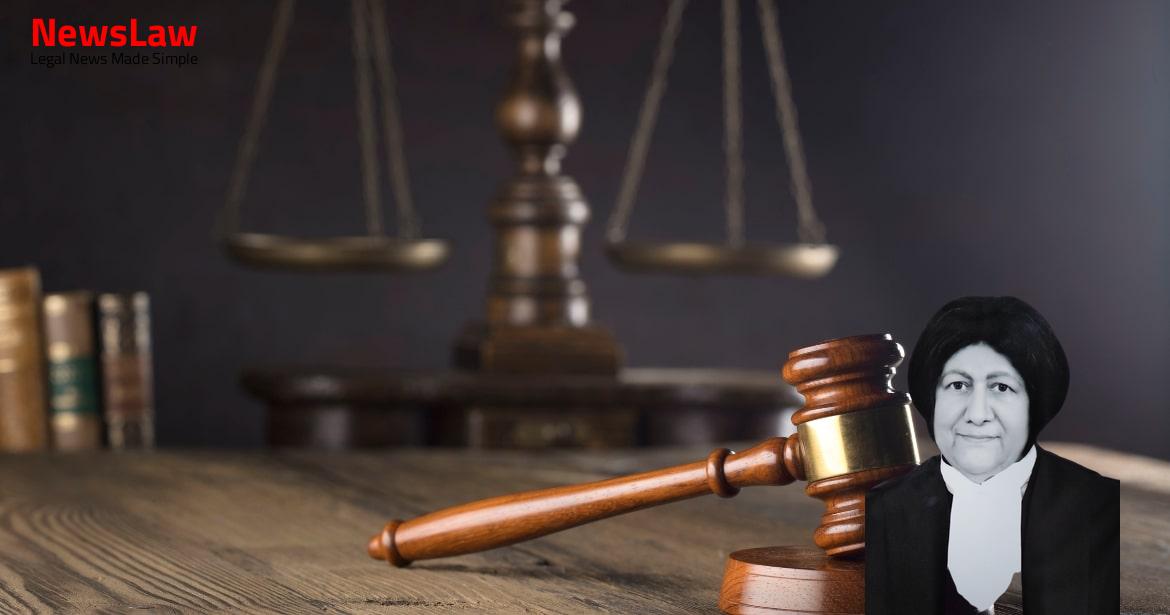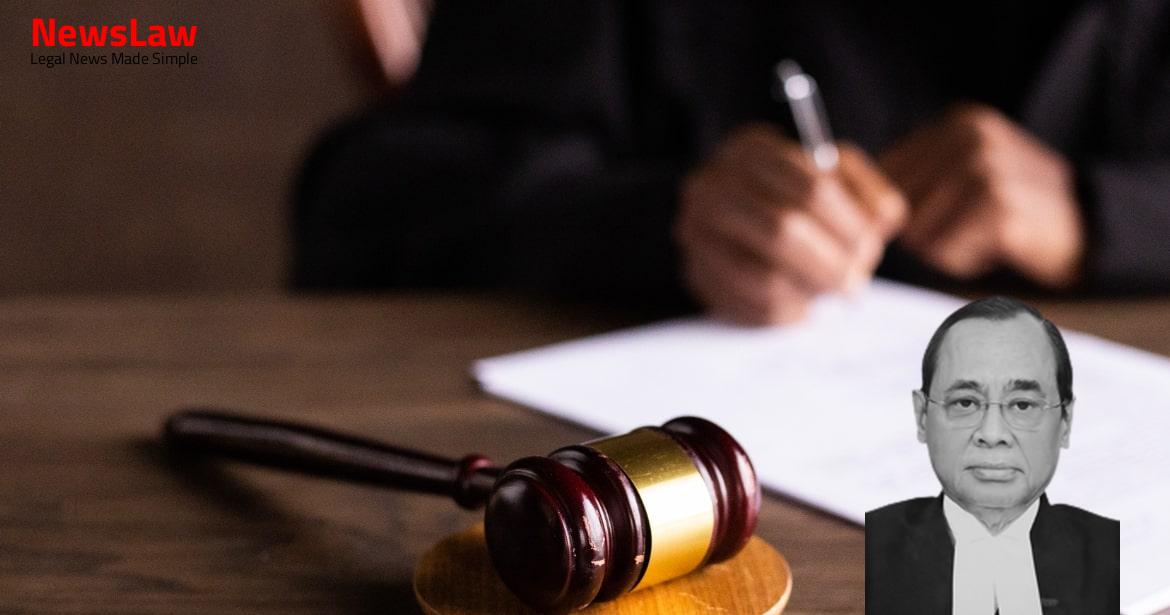A significant legal case regarding the exclusion of DHIC qualification holders in the selection process for Junior Health Inspector Grade-II positions has been resolved by the Supreme Court. The dispute between candidates with the DHIC qualification and those with traditional certifications has finally received clarity. Stay informed about the latest developments in this case by reading further.
Facts
- The High Court dismissed the writ proceedings as the report of the three-member committee did not indicate that the acquisition of the diploma pre-supposes the completion of the certificate course prescribed for the post.
- The Tribunal allowed the OAs and directed the recasting of the shortlist by excluding candidates with the DHIC qualification, stating that rules governing the selection process could not be altered mid-way.
- The High Court affirmed the Tribunal’s judgment and dismissed the writ petition filed by the appellants under Article 227 of the Constitution.
- Candidates affected by the decision of the Tribunal invoked the writ jurisdiction of the High Court after the Tribunal held that KPSC had wrongly entertained applications from DHIC qualification holders.
- The Director of Health Service communicated to the Principal Secretary, Local Self Government Institutions Department to consider candidates with a DHIC qualification for the post of Junior Health Inspector in the Municipal Common Service.
- The State Government, through the Principal Secretary to the Government in the Local Self Government Department, deemed the DHIC qualification to be higher in comparison to the qualifications specified in the notification.
- A notification for posts in five additional districts was published on 29 May 2015, with a common written test conducted on 27 November 2015 where the qualifications remained the same.
- KPSC advertised vacancies for the post of Junior Health Inspector Grade-II in the Municipal Common Service on 26 December 2014, and on 20 February 2017, KPSC affirmed that candidates with a DHIC qualification could be considered for the same post.
- Selected candidates for other districts were published by KPSC, and a list of selected candidates for the district of Kottayam was published on 16 November 2016.
- Candidates holding a Diploma in Health Inspectors Course were included in the shortlists, alongside candidates with the DHIC qualification.
- A Committee report highlighted the differences between the DHIC program and the Sanitary Inspector Diploma Course, including duration, textbooks, syllabi, and sessions.
- The Government of Kerala specified the method of recruitment and qualifications for posts in the Municipal Common Service on 16 August 1972.
- Cases were filed before the Tribunal challenging the decision to include DHIC qualification holders in the shortlists, prompting a comparative study of DHIC and SIDC syllabi by a three-member Committee.
- The DHIC qualification was not originally prescribed in the rules or advertisement for the posts.
Arguments
- Appellants argue that the State Government concluded DHIC as a higher qualification compared to the SIDC for specific posts.
- The High Court’s judgment only considered one aspect of Rule 10(a)(ii), neglecting the provision for KPSC’s determination.
- Both the State Government and KPSC support the appellants’ argument and claim a clear distinction between the posts in the two departments.
- The appellants assert that holders of the DHIC qualification undergo a more comprehensive course than the SIDC, which was mandated in 1972.
- The notification for applications specifically referenced Rule 10(a)(ii), which the committee evaluated to determine DHIC as a higher qualification.
- The Tribunal’s directive to exclude candidates possessing DHIC qualification was deemed unjustified, especially post the committee’s evaluation.
- Referring to the precedent set in the case of Jyoti K K v Kerala Public Service Commission, it is argued that a higher qualification in the same faculty can be seen to presuppose the acquisition of lower qualifications for the post.
- Responses to queries under the Right to Information Act 2005 revealed that the DHIC course conducted by the Directorate of Health Service is not considered a superior qualification to the SIDC.
- The rules could not be changed mid-way according to the argument presented.
- There was no determination of the equivalence of the qualifications in advance; it was only during the proceedings before the Tribunal that such an exercise was carried out.
- Mr. V Giri, learned Senior Counsel supported the judgment of the Tribunal and the High Court.
- The post of Junior Health Inspector Grade-II is available in both the Municipal Common Service and the Health Services Department.
Also Read: CRPF Act: Validity of Rule 27 for Compulsory Retirement – Case of Head Constable vs. CRPF
Analysis
- Rule 10(a)(ii) of the KSSSR outlines three situations regarding the recognition of qualifications as equivalent for a post.
- In the case at hand, the DHIC programme is not considered equivalent to the SIDC certificate course for the post of Junior Health Inspector Grade-II in the Municipal Common Service.
- The DHIC qualification does not presuppose the completion of the certificate course, making it ineligible as an equivalent qualification for the post.
- The technical qualifications required for the appellants were B.Tech or Bachelor’s degree holders in electrical engineering.
- The State Government order of 1972 specified qualifications for the post in question.
- The judgement clarifies that the DHIC does not match the specified qualifications for the post, nor is it recognized as equivalent by any executive orders.
- The Tribunal and the High Court supported the view that the DHIC does not qualify as an equivalent qualification for the post of Health Inspector Grade-II.
- The analysis highlights that there was no determination of equivalence by KPSC as required by Rule 10(a)(ii), and the DHIC does not presuppose the completion of the certificate course.
- The concept of ‘pre-suppose’ in qualifications is explained as being subsumed in the lower qualification prescribed for a post.
- The decision in Jyoti K K was distinguished in State of Punjab v Anita
- This distinction was noted in Zahoor Ahmad Rather v Sheikh Imtiyaz Ahmad
- The Principal Secretary to the State Government (EU) communicated to KPSC on 7 July 2017
- The DHIC does not pre-suppose the acquisition of the lower qualification.
- KPSC did not carry out the required exercise as per the rule.
- The High Court judgment is not erroneous.
Also Read: DAMEPL vs. DMRC: Curative Petition and Arbitral Award Restoration
Decision
- The appeals have been dismissed.
- Pending applications have been disposed of.
- No costs have been ordered.
Case Title: AJITH K. Vs. ANEESH K.S.
Case Number: C.A. No.-006178-006185 / 2019



